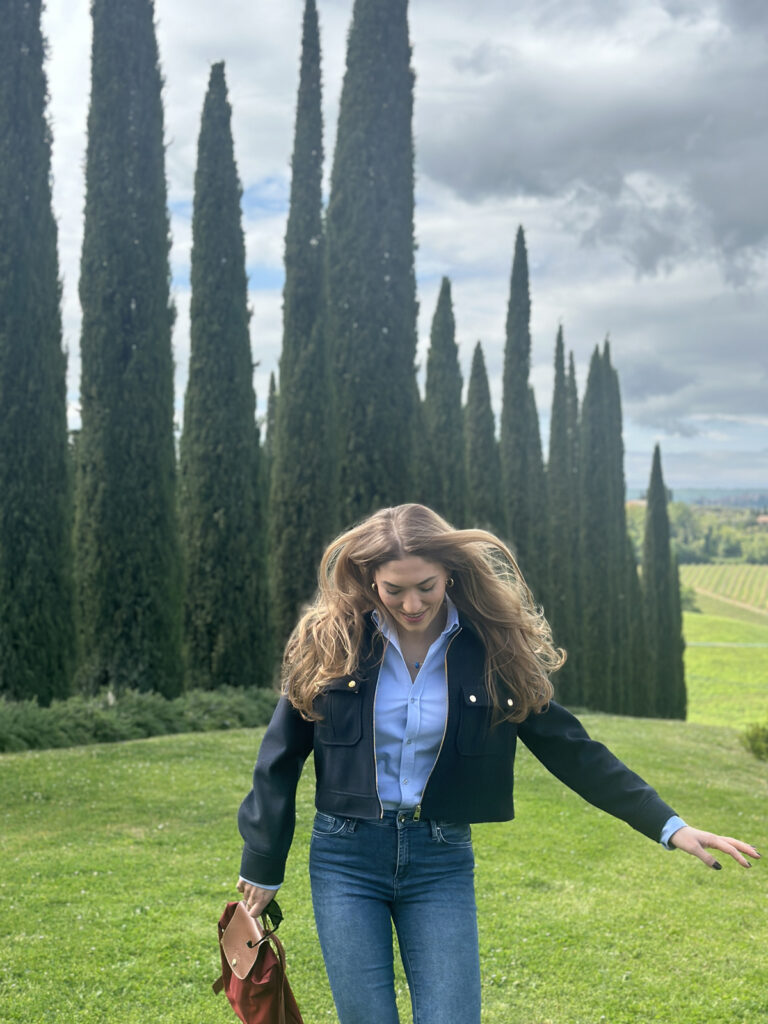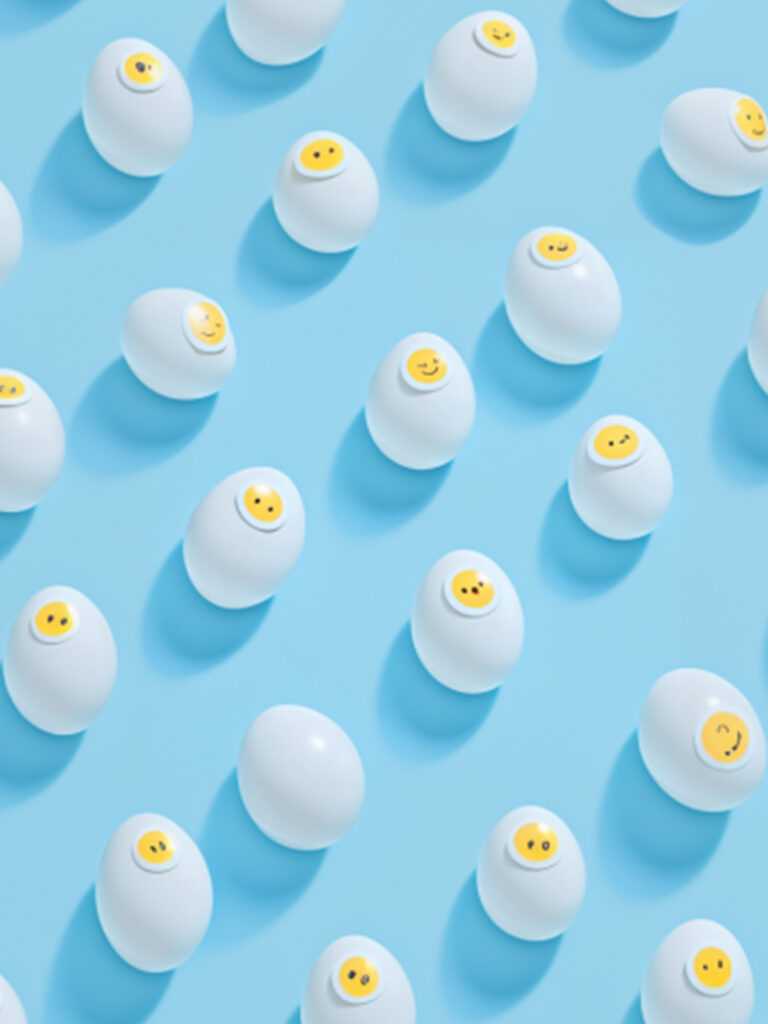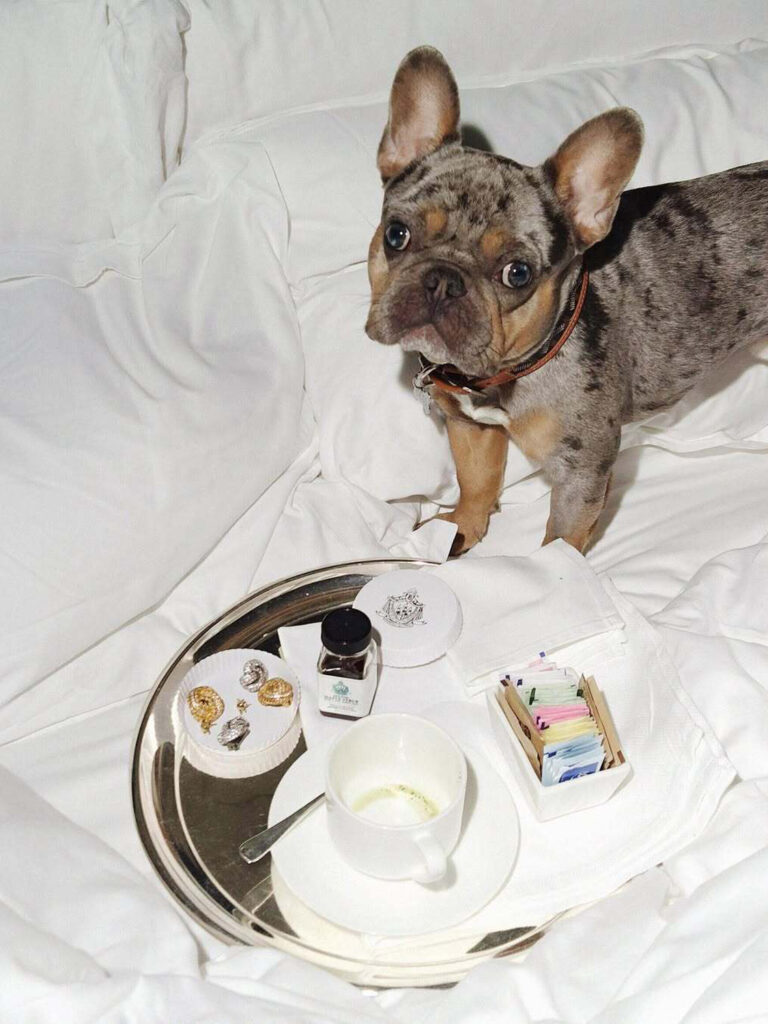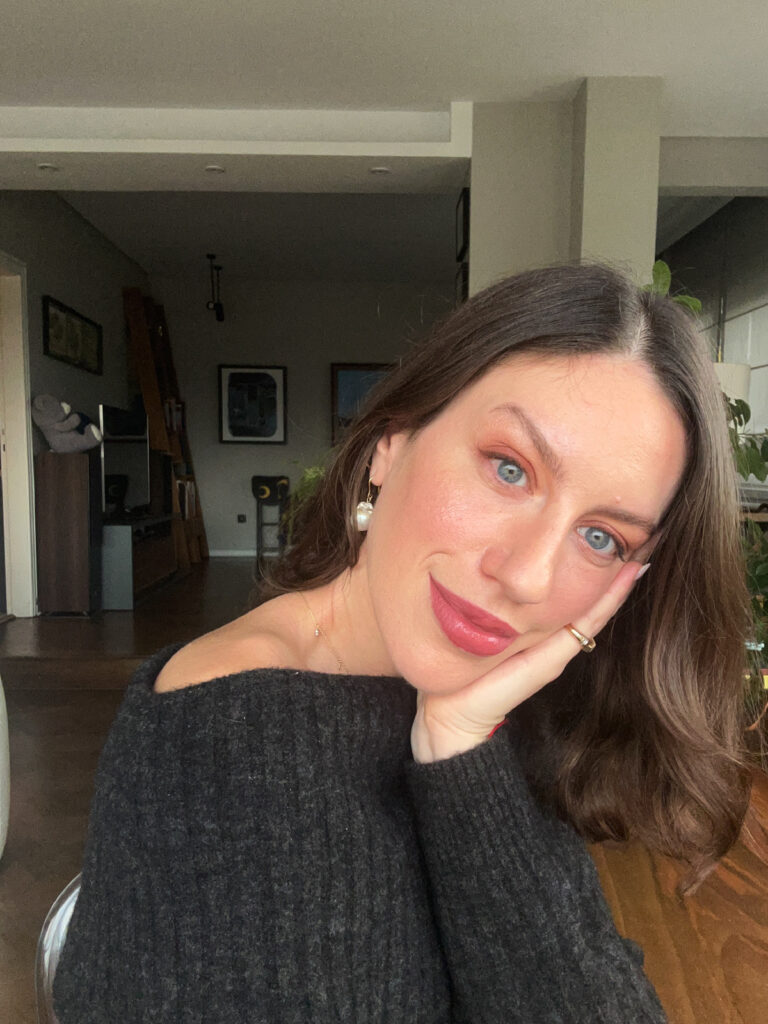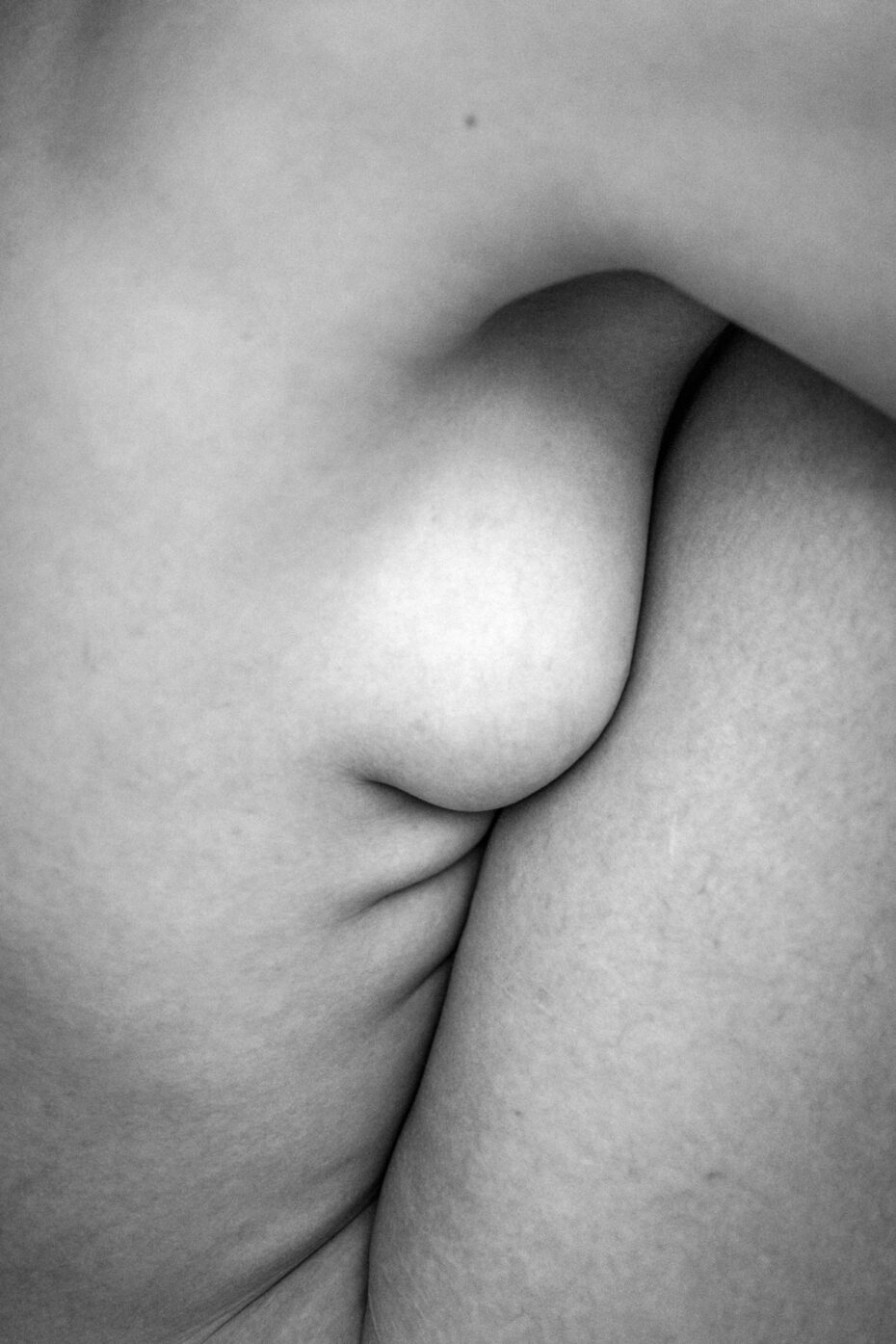
Photo: Janosch Lino / Unsplash
Stories
Emma Dabiri Wants You To Reimagine Beauty
Have you ever been unhappy with yourself physically? Have you felt that moment turn into an unhealthy loop of self-dissatisfaction? You are not alone. In her new book Disobedient Bodies, the social historian unpacks where our perceived flaws come from and how we can all reclaim the joy in beauty.
Text Defne Sarıçetin
When I first met Emma Dabiri, we were at an event in London where she gave a talk about her new book, Disobedient Bodies: Reclaim Your Unruly Bodies. The atmosphere felt charged with hope, more akin to a joyous ritual where women shared stories. There was a sense of being understood in the room. Her words felt empowering, as she historicized beauty, despite the grim sources of ideals placed on women. Her insightfulness in citing her own experiences also inspired the audience; many women from various backgrounds admitted to struggling under the same pressures, jokes on how philosophy was never rendered this engagingly at school, a young man asking how he can support his girlfriend with her eating disorder.
Dabiri has a way of interrogating beauty and beauty culture without scorn. We deserve to not live in a state of constant scrutiny, and we deserve to take pleasure in glamour. Feeling good in our bodies is our birthright, so how has it become so natural that we are taught to hate parts of ourselves? “We spend a lot of time trying to improve our ‘defects’, according to society’s ideals of beauty,” Disobedient Bodies’ blurb reads, “but these ideals that are often reductive, tyrannical and commercially entangled, imposed upon us by oppressive systems and further strengthened by our conditioned self-loathing.”
The Irish-Nigerian author and academic has previously written Don’t Touch My Hair and What White People Can Do Next. Her third book, Disobedient Bodies, a dissenting essay tackling beauty, opens with a gleeful scene most of us are familiar with: getting ready with the girls. Dabiri reminds us how there can be so much magic, creativity, self-expression, and sisterhood around rituals of beautification and how there is so much pleasure to be found in our bodies, as well as self-care. Why, then, she thought, almost all women have felt insecure, dissatisfied, or not good enough at one point in their lives. She looks back at history and philosophy, charting the Western and Eurocentric ideals of how we are conditioned to judge beauty and ourselves globally today. From witch hunts, industrialization, and Descartes to alternatives in Yoruba and Navajo cultures, she explores solutions and possibilities for fulfilment, the unattainable ideal of perfection versus being flawed, or aiming for balance and harmony.
On the phone for this interview, Dabiri has a buoyancy to her voice, whether telling me it’s half-term, so her kids are home, or distilling how capitalism shapes self-image. When we’re talking about the roots of beauty standards, there are many moments when it’s hard not to feel disbelief and rage, but there is also room for laughter. Her sense of humor and realism are elements that are, I think, in a way, inherent to disobedience. At the event, she had joked about not realizing how her skirt would be a lot shorter once she sat down, and the irony of this observation coupled with the theme of her book. And how it is not ironic at all. While making thoughts that were often reserved for academic discourse accessible, she brings a keen observation of our daily realities and the thoughts we all have. In questioning where these thoughts originate, she subtly transfers an expanded way of thinking to her reader and offers alternative narratives of other defiant and joyful ways to be.
Our ideals of beauty are not inherently natural ideas but a reflection of our political climate, not separate from the capitalistic and patriarchal systems we exist in. Disobedient Bodies is a moving call to rebel against obedience and reclaim our bodies. And a reminder that it is possible to embrace a new way to do beauty without objectification, consumerism, competition, control, and shame. We talk about this complex history, its oppressive expectations, and how we might reconsider our relationship to beauty.
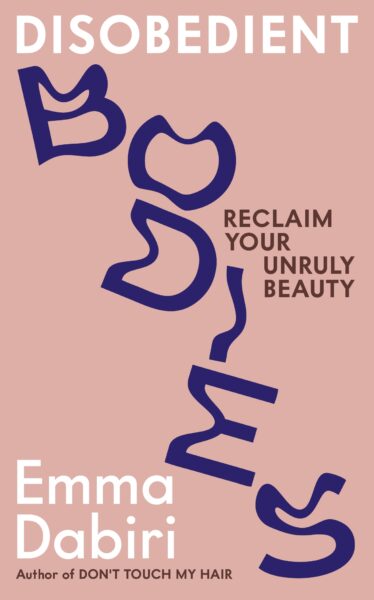
Disobedient Bodies is a wonderful amalgamation of historical context, feminist discourse, and the social control that inflicts a level of discontentment with our bodies. But it’s also an invitation to consider different values and a more joyous alternative that includes glamour, beautification rituals, a sense of community, and the pleasure to be found in our bodies. How did you decide to write this book?
I was approached to write a book about beauty to accompany the exhibition that is currently on at the Wellcome Collection called The Cult of Beauty. I could look at beauty from any angle that I wanted to, which is obviously vast, so I was thinking oh gosh, how do I narrow this down? Then, I thought about some ideas I touched upon when writing my first book, Don’t Touch My Hair, that I wanted to explore further. I think I wanted to try and answer the question about why me personally—and I think pretty much every woman I know at some point in their life—has been unhappy with themselves and their appearance. Where does that really come from? And what could we actually do for it not to be the case?
In the book, you touch on ocularcentrism [sight as the primary sense with which we make sense of the world]. We live in a visual economy landscape more than ever. How do you think this shift towards broadcasting ourselves with social media, Zoom, and selfies affects culture and all of us individually?
This idea of ocularcentrism has been with us for millennia, so that’s not new in this part of the world. I think the idea that beauty is primarily a visual, physical thing that we can know by sight and make a value judgment (that we can know something about a person based on their appearance) has been with us for a long time. But that’s become turbocharged by our current relationship with technology and the fact that we communicate so much, to an unprecedented extent, through visual mediums, photographs, and sometimes video and live cameras. Whereas in the past, our primary method or mode of communication would be in the material world and would be face-to-face. There’s been a huge shift where so much of our relationships and discourse are conducted via apps and digital spaces. We have photographs and images of ourselves that almost operate as avatars for us in a way. It reduces us to being far more two-dimensional than we are. Our physical appearance becomes more pronounced when we rely so much on photographs and images of ourselves.
You delve into how beauty can’t be separated from history, race, colonization, scientific racism, and eugenics, as well as existing power structures such as the patriarchy. Historically, proximity to classical European beauty ideals not only determined who was most “beautiful” but also who was more worthy, and who was the most “human.” How do you think the past and the still-present systems affect the contemporary conversations around beauty and culture? And how do you approach this idea of “disobedience”?
My first degree was largely rooted in post-colonial studies. I feel like there are so many disparate issues in the world that are seen as being unconnected from each other, but in fact, there’s a structure that we live within and under that determines how we have organized society, you know. That structure of global capitalism and commerce was one of the key building blocks of colonialism. So, colonialism has spread a particular lens through which we view the world but has also organized it according to a colonial logic that manifests itself in all aspects of our lives. My first book was about hair, my second book was about anti-racism, and this book is about beauty. Even though that’s a broad range of themes, you’ll see me grappling with the same kind of system because it determines every aspect of our lives. People often consider capitalism as an economic system, but it’s so much more. It determines our social relations and our understandings. It has colonised our imaginations often, and informs our understandings of ourselves and each other. So, I was thinking about what beauty culture looks like within a system whose organizing principles are hyper-individualism, exploitation, and competition. And what would beauty cultures look like under systems that prioritized cooperation and community over competition and were less focused on or didn’t have hyper-individualism as their prevailing logic?
So much of the objectification of women that exists in our contemporary culture was written in the 1970s by John Berger’s Ways of Seeing. We see the origins of the form of capitalism that we live under now, the centralizing logic of private property, and how those norms fed into the representation of women. And the specific ways in which women were represented and objectified, and how those norms have traveled from oil painting into advertising, into the current day and our depictions and representations of ourselves, even in social media.
How can we do it differently? To think about it differently, we must understand the nature of the system. I believe we need to see what it is that we exist in. Because there are so many things that we’re told are “just the way things are”, how these are just “foundational truths.” But they are often not. They’re often culturally specific and very much the ways of doing things that emerge from living under capitalism instead of being just the natural order of things! I think we need to have a greater awareness of the constructed nature of our reality so that we know there are alternatives. There are also other choices and other options. And there have been times and places where people have done things differently.
Absolutely. I also really enjoyed your rendition of philosophy. There are a lot of notions people can attribute to biology, nature, or fact that are societal conditioning or some ideas by a group of European men centuries ago. For someone who might not necessarily be familiar with the sources of these standards and beliefs, or for example, with the Cartesian binary you mention, how might we expand our views?
I’m kind of obsessed with the Cartesian binary. And I feel like even though probably most people might not be familiar with the terminology; it’s very straightforward when you just break it down. The Cartesian binary organizes the world according to opposites in binary categories. I think the most basic ones are woman and man, black and white, nature and culture, or good and bad, perfect and flawed. We kind of approach everything through that lens. That binary formulation isn’t actually how the world exists; it’s a form that’s been imposed on us. I was also thinking about—because it’s a specific kind of European philosophical thought—the body and the mind are also big binaries within that. And within the binaries, there’s always this hierarchy, like one being superior and one being inferior. With the body being inferior, I was looking at ways in which that plays into our relationships with our bodies (the body as being separate and subservient to the mind) and what would it be like within cultures that hadn’t organized the world and reality according to those binaries? If they didn’t have that immutable split between the body and the mind, what would their relationships to bodies look like?
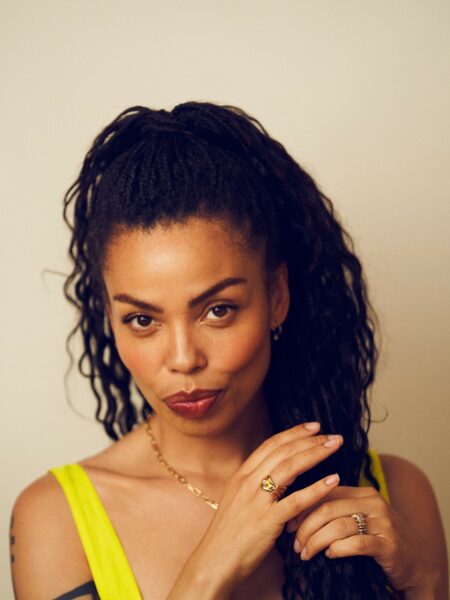
Speaking of this binary of flawed versus perfection, what comes to mind when you think of what’s deemed as “flaws” that you have come to love?
I’ve been talking about pushing myself to make choices I’m uncomfortable with. And then, from that point of view, assess more clearly which decisions I make about my appearance result from my conditioning and me just uncritically reproducing things that I’ve been conditioned to? Or what am I doing that’s based on a sense of autonomy because I want to do it? I kind of had that with body hair and shaving. Also, with my own hair when I went back to having natural hair. At the moment, I’m kind of doing that with makeup. I did a big public event yesterday at The Wellcome Trust, The Cult of Beauty talk for redefining beauty. I had planned to do my makeup on the train, then decided I wanted to snooze because I was tired. Then I thought: Oh, I haven’t done my makeup! I was like, I’ll get there early, then I was hungry. So, I thought, I’ll just have to do the talk with no makeup, and I did it.
Again, I just need to caveat this with the fact that I love makeup! I’m going to put some makeup on after we get off the phone. I’m not in the position of somebody who’s just disinterested in makeup and doesn’t enjoy wearing it. But, when I watched a few minutes of the talkback today, I just thought of all the years I wore such heavy makeup essentially to disguise myself. You know, like a mask. When I was a teenager and into my twenties, I was just so plagued with a sense that going out without makeup was unfathomable to me! So, I don’t really have an answer. I was just thinking of the different headspaces that I occupied. I was just like, wow! What was going on? I was so in the trap of something that made me feel really shit about myself, that made me think I wasn’t good enough. And that I needed to spend hours transforming myself to have any value.
In your talk you mentioned how our choices are not being made in a vacuum. What are your thoughts on choice feminism? And how do you approach these ideas around agency, choice, and the use of empowering language?
There’s this idea that I write about; it’s like the politics of refusal and the refusal of all of the choices on offer. And actually reimagining our landscape in such a way that new choices emerge. What we see happening is just going back to consumerism; we just see the consumer choice as being in and of itself a liberatory process. When it’s consumer choice under capitalism, the fact that this form of inverted-commas “feminism” where any consumer choice that a woman makes is by virtue of her gender a feminist choice is just codswallop, you know—like words have meaning! Liberals kind of hijacked the language of radicalism and then kind of sanitized the ideas and used them in a way that essentially preserves the status quo but makes it more diverse potentially. But essentially, the norms of it remain the same. To me, feminism isn’t just “equality with men.” Even if there is equality with men, it’s in a system that is exploitative and extractive. So, if some women are equal to men in that system, the current system is still not liberatory. To me, feminism is an action or something that challenges patriarchy—not just for women but also for men because patriarchy is an oppressive and reductive system. Feminism isn’t just about women having the “freedom” to make choices, to make consumer choices under capitalism, or having equality with men under this system. Still it’s about things that challenge patriarchal norms directly or in some way.
You’ve said this book was also “a reminder and provocation that we can actually think about things in a different way, that a different value system is possible.” Do you believe we are on the cusp of a change that feels possible?
Yes and no. I think there’s a huge thirst for things—not just when it comes to beauty, but our whole way of living—to be very different from how they are now. I also feel that many of the solutions proposed to us for whatever social malaise we’re thinking about often exist within the same logic as the problem. I feel mainstream solutions to things generally don’t have the generative power to bring about the type of transformation necessary to do things very differently. I loathe to use the word “radical” because I feel it’s been co-opted by the mainstream. Many of these mainstream solutions purport to be radical, but they’re not. Because to be radical would be to propose a different framework rather than just continue operating in this one. Obviously, there’s a huge industry and huge investment in people remaining insecure about their appearances. It’s not even that people are insecure about their appearances, but I think culturally, we’re just really disconnected from ourselves, our environment, and each other. I think occupying that space of disconnectedness leaves one, kind of empty, hollow, and vulnerable to trying to fill the void (which exists as a result of that disconnection) maybe just through consumerism, or through this driving for an impossible-to-achieve and constantly shifting goal post of perfectionism. This driving for perfectionism is something I write about in the book as well. I was also fascinated by cultures where perfection wasn’t as aspirational as it is in our culture, where the aspiration was more oriented towards achieving harmony and balance. Again, I wondered how that would impact and transform our relationship to beauty if we weren’t seeking shallow or superficial physical perfection;but rather, we were trying to achieve balance and harmony, which would have to be deeper than something that was purely or superficially visual.


